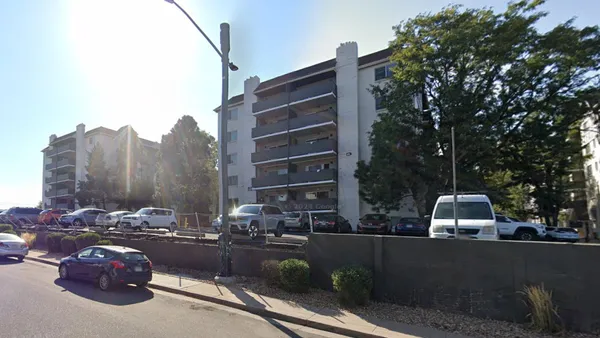Dive Brief:
- The military housing division of El Paso, Texas-based developer and property manager Hunt Companies has agreed to pay $500,000 to resolve allegations of fraud at Dover Air Force Base in Delaware, according to the Department of Justice. The settlement resolves the allegations and closes the case against the company with no admission of guilt from Hunt.
- The DOJ said that Hunt Military Communities submitted false information to the Air Force between January 2013 and June 2019 in order to receive higher performance incentive payouts from the government.
- In a statement to Construction Dive, Hunt acknowledged resolving allegations around "inaccurate work order data," and performance incentive fees at Air Force properties during that time frame, but didn't admit to wrongdoing. "HMC cooperated fully with the DOJ throughout the investigation, which started in January 2020," Hunt said in the statement. "Under the terms of the civil resolution, HMC agreed to pay $500,000 to resolve allegations regarding inaccurate work order data."
Dive Insight
The DOJ's resolution with Hunt comes less than a month after Malvern, Pennsylvania-based Balfour Beatty Communities (BBC), the U.S subsidiary of Balfour Beatty and one of the country's largest providers of privatized military housing, pleaded guilty to one count of fraud and agreed to pay more than $65 million in fines and restitution.
The fraud scheme, which ran from 2013 to 2019, caused military families to suffer as they waited through "lengthy and unnecessary delays in the resolution of maintenance issues," according to the DOJ. BBC employees closed work orders before maintenance had been completed, and destroyed and falsified resident comment cards to inflate resident satisfaction metrics at communities in which it operated, according to the DOJ.
By producing these false reports, the company was able to induce the military to pay bonus fees the company had not earned. Overall, the scheme cost the federal government $18.7 million, according to court documents.
Hunt resolution
Under the Military Housing Privatization Initiative (MHPI), private companies earn fees for the various phases of development and management of military housing communities, from design and construction to ongoing community management and maintenance. They are eligible to earn quarterly bonuses if they meet certain performance incentives.
In the announcement of the settlement with Hunt, U.S. Attorney David C. Weiss put out a statement saying that it would not tolerate "disappointing conduct" from military service providers.
"The U.S. Attorney's Office for the District of Delaware is committed to fighting for the wellbeing of our service members and their families, especially those stationed at Dover Air Force Base," he said. "When companies put service members' welfare at risk to maximize profit, they cheat the government as well as everyone who serves our country."
The government's claims were based on a whistleblower complaint by Christine Kibler, the community director for housing at Dover Air Force Base, according to Air Force Times. The allegations of fraud were brought under The False Claims Act, which provides whistleblowers with a share of the government's recovery.
Problems at Dover
Issues at military housing have been in the news for a few years and Congress and the military have also initiated investigations. Housing advocates and residents say that Dover Air Force Base wasn't immune from these problems.
Lori Ogden, whose husband is in the Air Force and whose family lived at privatized housing at multiple Air Force bases, told Construction Dive that her family's first home at Dover was fine. But her second residence at the base, where she lived from 2014 to 2019, had poor window installations, an improperly functioning dishwasher and an HVAC system with mold.
While Ogden said Hunt eventually addressed some of these issues with inadequate repairs, she said her family had to endure a lot. She didn't feel the settlement with Hunt was large enough.
"Dover Air Force Base is supposedly getting half a million dollars and that's great," she said. "But, for the families that lived there, we went through a lot."











